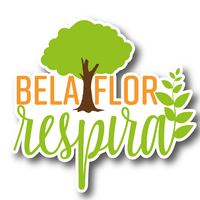Bela Flor Respira
Bela Flor Respira (BFR) is an urban agroecology and permaculture project that began in a social housing project in the Campolide neighbourhood of Lisbon in 2018.
General introduction
| BFR translates as "The lovely flower breathes". It is an ecological transition project, that has transformed a forgotten wasteland into a productive and regenerative space, with a community meeting space. The project was developed by the Portuguese NGO Circular Economy Portugal and is an example of a Social food movements project based in the parish (local governanmnet) of Campolide. It is a community project based around the principles of urban agroforestry. With the evolution of the project, it began to be called ComBOA (with GOOD, in Portuguese).
BFR's initial goal was to encourage families to separate organic waste for composting in urban gardens located in the neighbourhood itself. The compost products were to be used as a natural fertilizer for organic plants, fruits and vegetables grown for local consumption. In this way, citizens are directly involved in closing the cycle and making cities greener. |
Main insights on/for sustainable just cities
Until the 1990s the Bela Flor territory contained a large informal settlement at the city edge, on a hill that led down to the Alcântara valley. Social housing units replaced this, but the community was still somewhat socially marginalised. BFR started with fruit trees being planted along the eastern side steep embankment of the housing blocks, beside steps leading to the city centre. Rows of mixed vegetables were planted by the flatter area alongside a block. The group have a ground floor storage space for storing tools and for education purposes.
For Global Degrowth Day in June 2019, the Ecocity Lisboa urban walking tour visited the project and found that although many children of the neighbourhood participated, few adults did, most BFR participants didn’t live in the community. Perhaps BF adults saw the project as a distraction for their children, but something for outsiders.
Urban Agroforestry
An agroforestry is a natural space where forest, fruit trees and agricultural crops are gathered, interspersing species of different sizes and characteristics in order to make the most of the land and taking into account the maintenance and reintroduction of native species.
The association of different types of species, between fruit and vegetables, with different growing and harvesting times, allows the land to be productive throughout the year and in the long run, and is also a more sustainable form of cultivation that helps to forest recovery.
Agroforestry is one of the natural systems that best allows the capture of water for aquifers in the subsoil and regeneration of the soil in order to counter erosion.
The construction of cities has always had a great focus on accommodating the maximum number of people and services, devaluing for a long time the spaces that allow this to be sustainable and that bring quality of life to those who live in these concrete jungles.
An agroforestry in the city allows in a limited space to be able to perform many ecological and social functions that bring a lot of resilience to the population, which not all green spaces can.
It is increasingly important to understand where the undervalued spaces are in the city where this can be enhanced.
Suggested key readings & links
Links
- Website https://belaflorrespira.wixsite.com/agrofloresta
- Facebook: Bela Flor Respira - Agrofloresta Urbana de Campolide - Comboa https://www.facebook.com/belaflorrespira/
- Instagram https://www.instagram.com/belaflorrespira/
- Google Maps location: https://goo.gl/maps/dqziYQg8iTvDt9SF9
- Telephone: (+351) 919574811
- Email: belaflorrespira@gmail.com
- Circular Economy Portugal (Portuguese NGO) http://www.circulareconomy.pt/ Circular Economy Portugal
Link to other Wiki-pages
- Community gardens and food
- Social food movements
- Nature-based solutions
- Regeneration of disused urban land
- Sharing and cooperatives for urban commons
- Policies and practices for inclusion of disadvantaged groups
- Urban development through cultural solutions
Further reading
Publications
Social Media Reports
- Lisbon Municipal Council (CML), Facebook, 3 October 2020: https://www.facebook.com/camaradelisboa/posts/3636226666397257
- Lisboa Green Capital 2020, Facebook, 3 October 2020: https://www.facebook.com/LisboaGreenCapital2020/posts/338231370840955
Video Reports
- Faz Faísca (Make Sparks) on RTP TV, 17 Jan. 2021. Season 3, episode 36 (From 18:20 mins): https://www.rtp.pt/play/p7301/e518391/faz-faisca
- BELA FLOR RESPIRA, video by Syncview Imagem e Meios, June 2019: https://vimeo.com/423651934?1
- Agrofloresta de Campolide - Bela Flor Respira. Junta Freguesia Campolide, May 11, 2020 https://www.youtube.com/watch?v=P-TPqfNVV4Y
- Bela Flor Respira - Agrofloresta Urbana em Campolide - Project Teaser https://www.youtube.com/watch?v=Y0x7V4ltwso
